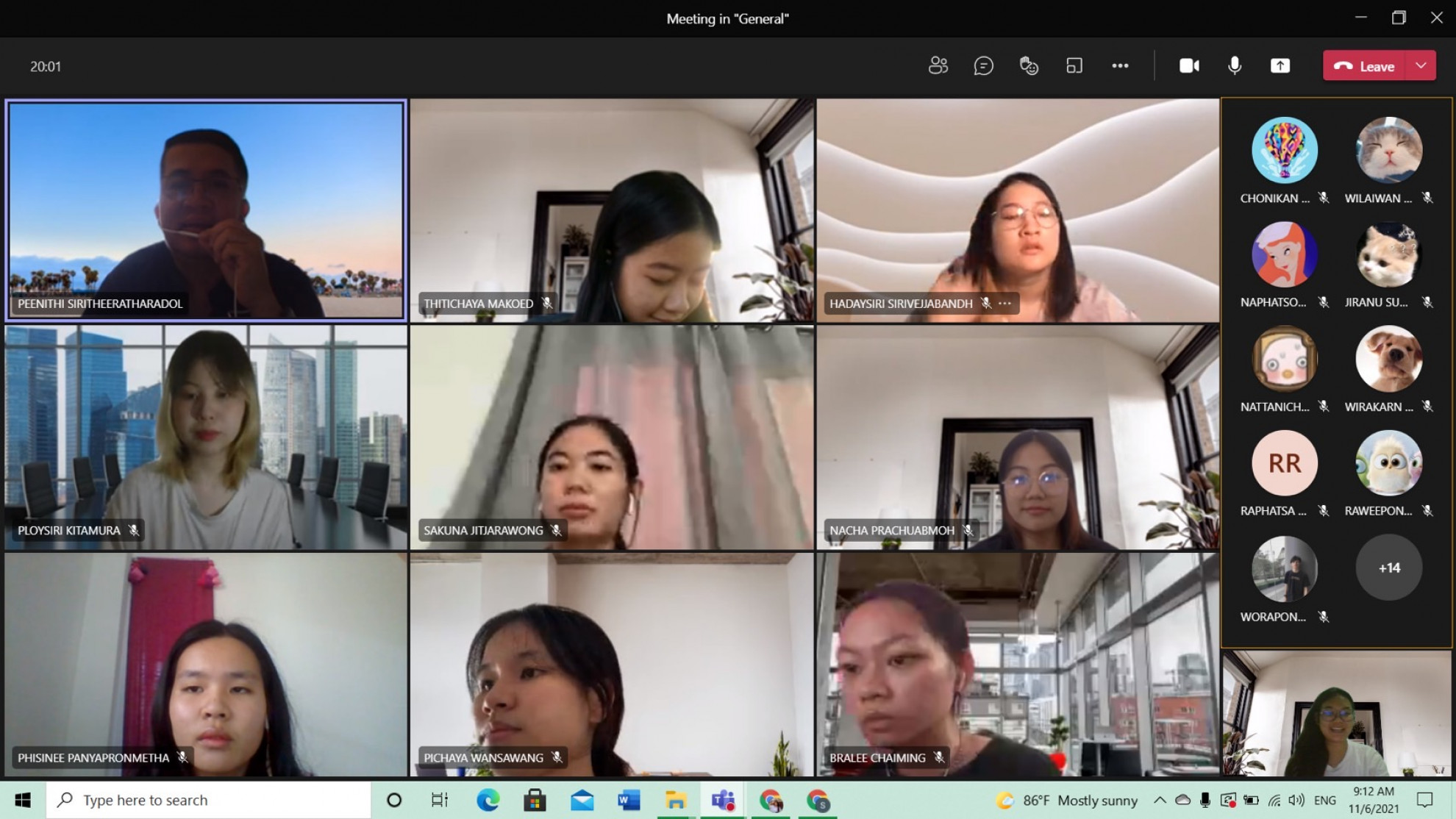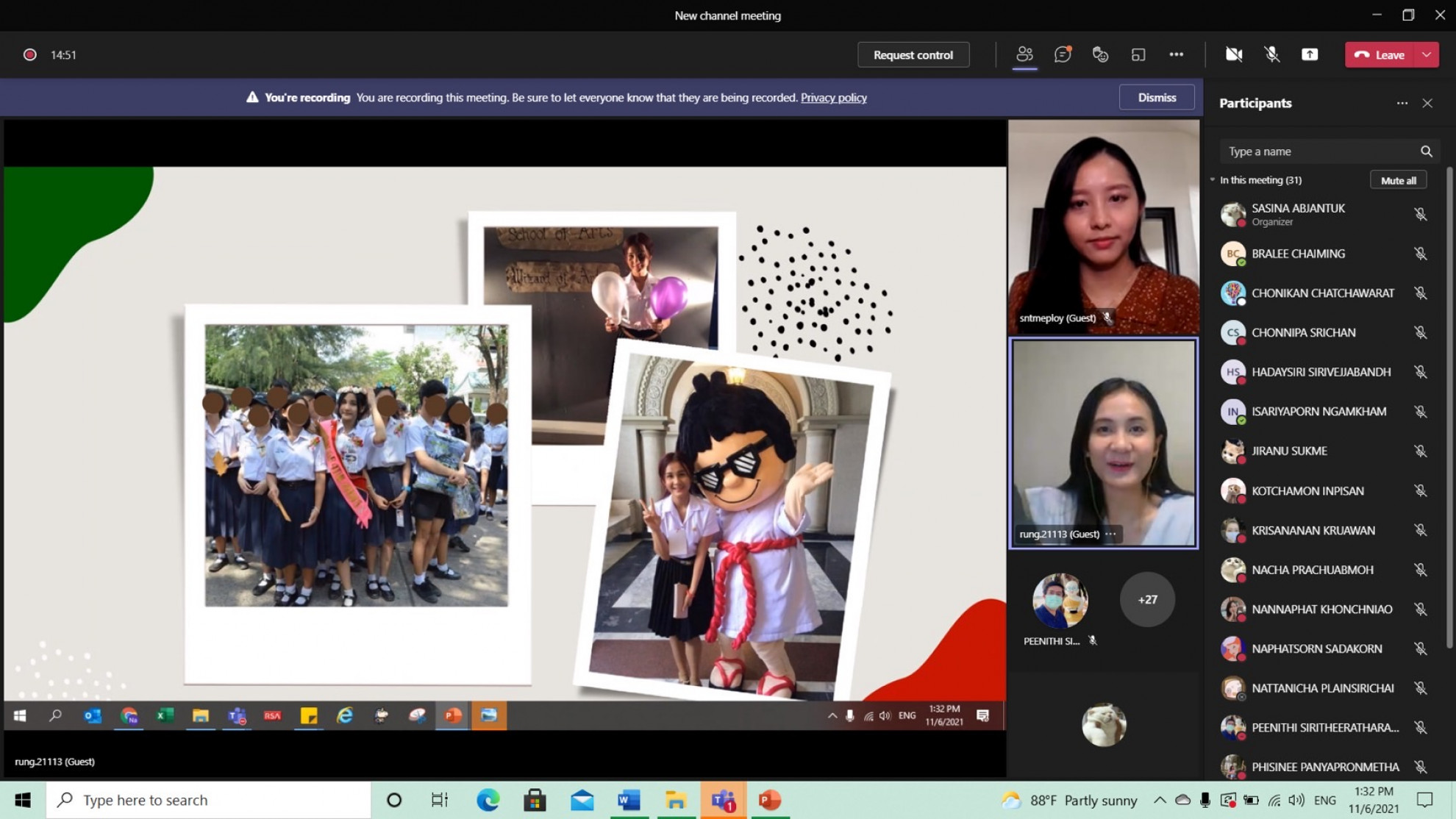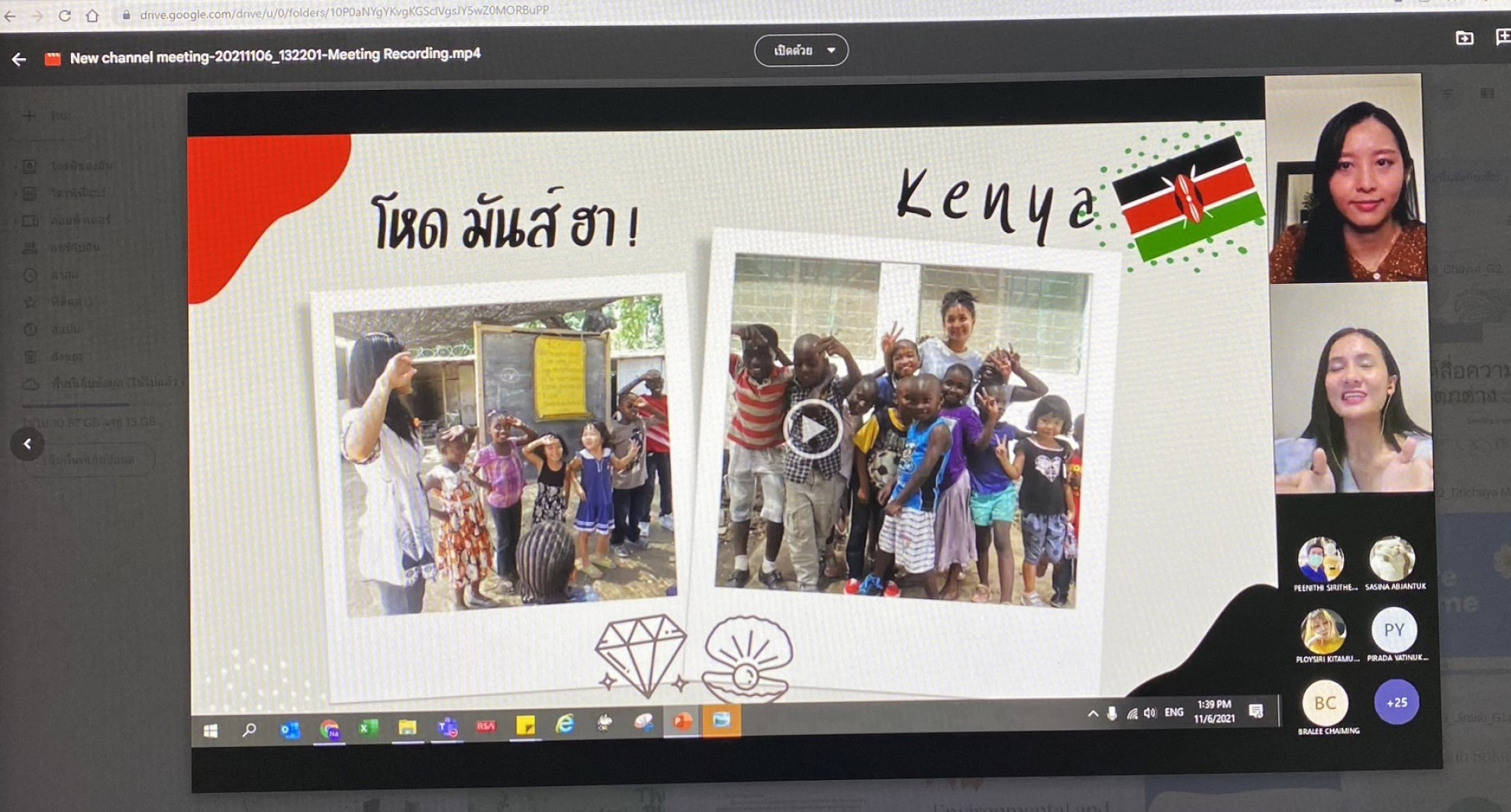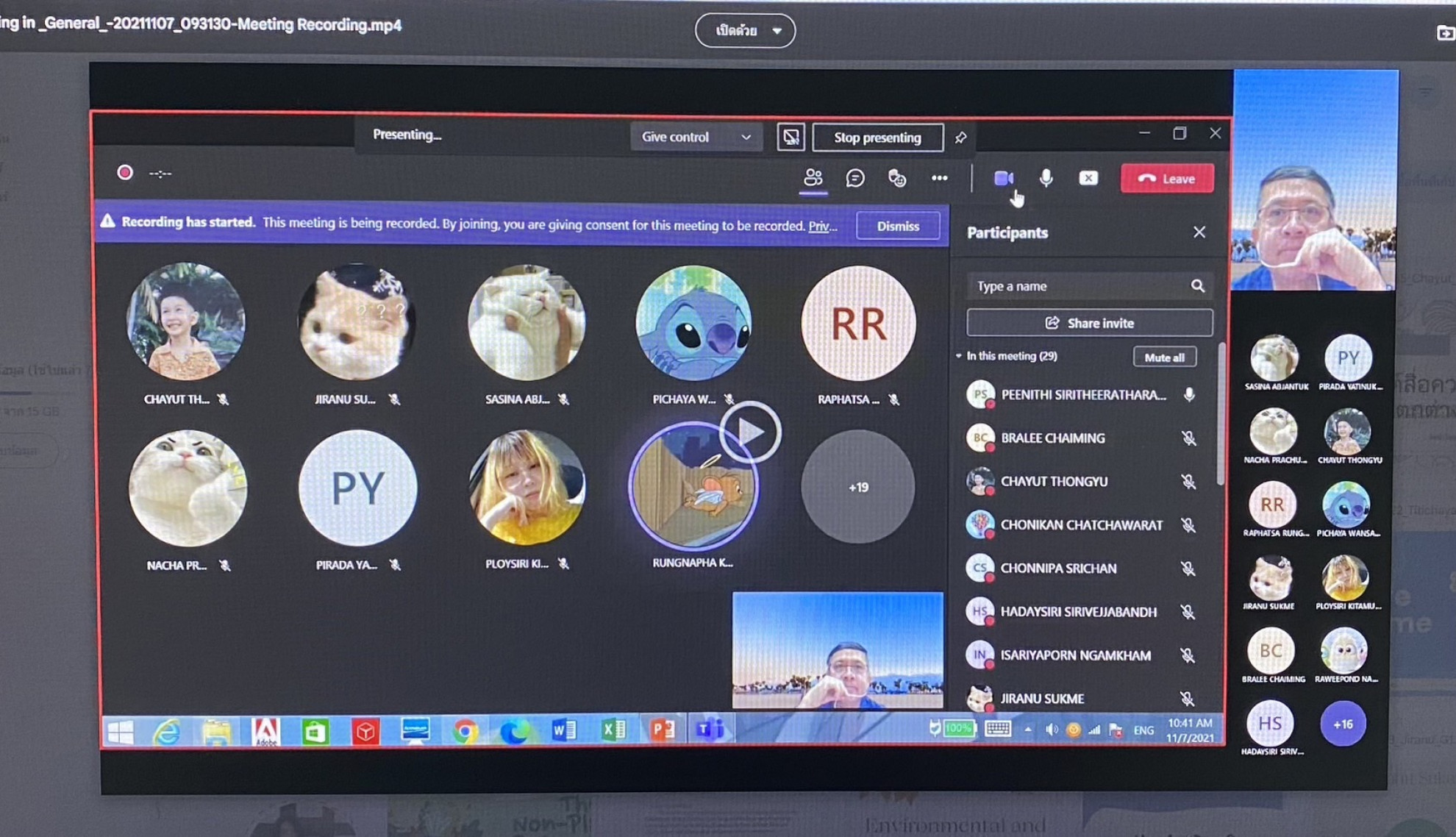





| Target | Indicator | Result |
|---|---|---|

SDG 4
QUALITY EDUCATION
|
||
Currently, societies are experiencing disruption which is affecting the youth. Some of them are unable to cope with the challenges, resulting in maladaptive thoughts and behaviors as well as poor well-being. For example, (a) in one study of Thai adolescents aged between 10 and 19 years, 40% of them were at risk of depression and 18% had been diagnosed with depression, (b) in another study, there were 129 new cases of children and young people suffering game addiction, which was a sixfold increase during 2016-2017 (Department of Mental Health of Thailand, 2017), and (c) of the 177,731 substance users receiving addiction treatment in 2017, the proportion of young people aged 15-24 years receiving the treatment was 41.5% (Office of the Narcotics Control Board, 2020). Therefore, educational institutions must promote desirable characteristics for young people and encourage them to spend time doing activities that benefit communities.
Active global citizenship (AGC) is an important goal of educational management in Thailand. It is aimed at cultivating discipline among Thai citizens as well as encouraging them to be active and become self-directed lifelong learners. They are expected to possess knowledge and skills, positive attitudes and values, complete physical and mental health, and public-mindedness. At the same time, they are also expected to have Thai, ASEAN, and global citizenship qualities (Office of the National Economic and Social Development Board, 2017). Moreover, United Nations Educational, Scientific and Cultural Organization (UNESCO, 2015) defines global citizens as individuals perceiving that they belong to their communities and societies in terms of political, economic, social, and cultural interdependence, and the connection between local, national, and global contexts. Therefore, educational management and learning processes must be linked with social issues and promote the qualities of being a good citizen of a society, a country, and the world, that is, focusing on public-mindedness and contributions to the common good in society as well as cultivating the qualities of global citizens (Carlos, 2017).
Generally, exploratory, and qualitative studies have been conducted to investigate the relationships and the variables related to active citizenship and global citizenship variables. For example, Hoskins et al. (2008) studied the effect of educational management based on active citizenship on the participation of students and university students at all educational levels. The data were obtained from the European Social Survey; the results showed that, overall, formal education was significantly associated with democratic and active citizenship behaviors. Morais and Ogden (2011) qualitatively studied global citizenship. They developed the Global Citizenship Scale based on grounded theory to measure global citizenship, which was categorized into three dimensions, namely, social responsibility, global competence, and global civic engagement. Woldemelekot (2017) investigated the components and factors related to global citizenship with 681 faculty and fourth-year undergraduate students at Kennesaw State University and discovered the following: global competence significantly correlated with global citizenship; the correlation between global competence and global ventures was at a moderate level; and similarly, global citizenship significantly correlated with global ventures.
In addition, several previous studies found that beliefs, positive attitudes, and behaviors were transformed successfully via transformative learning (TL) processes. For example, Battin (2017) explored challenging experiences among student affairs leaders in approaching university students with substance use problems based on the TL theory. Eight student affairs leaders having experienced challenges in approaching students with substance use problems were interviewed. The results revealed four components associated with the TL of student affairs leaders, including challenge; reflection; dialogue structure; and action. Pavlakis and Giotopoulos (2018) explored the promotion of empathy by applying TL through aesthetic experience among 44 participants. The results showed that TL through aesthetic experience could promote critical thinking and empathy among learners. Yee et al. (2019) explored types and ranges of TL associated with the design of social innovation. The results showed that those who participated in designing social innovation had a significant process of perspective change. According to the aforementioned studies, it has been found that the previous studies typically performed an exploratory study to investigate relationships and the variables ‘global citizenship’ or ‘active global citizenship’, indicating that experimental study on active global citizenship is scarcely found. Accordingly, the current study integrated a TL concept with a service-based learning concept in the development of a program to promote AGC in undergraduate students. The program focused on encouraging transformation in three domains, which were psychology (changes in self-understanding); beliefs (changes in the structure of beliefs formation); and behavior (changes in lifestyles) (Mezirow, 2012). TL holistically influences the promotion of AGC in all three domains: students can acquire knowledge and understanding of roles, duties, responsibilities, and engagement as AGC, adopt positive beliefs and attitudes towards AGC, and believe in the power to constructively change societies, and the world, and exhibit behaviors and use expressions representing the potential for AGC.
The data were collected using the AGC Scale with a reliability of .968. Assessments were conducted three times: before, after the experiment, and follow-up. The TLP consisted of five steps: (a) Review social issues and crises contributing to disorientation; (b) Reflect critically to reach solutions; (c) Reformulate the meaning of perspectives to plan a course of action based on new perspectives; (e) Accept and improve new practices; and (f) Evaluate. MANOVA was performed to analyze the data. The results showed that students in the experimental group had a higher mean score of AGC than the control group, both after treatment and at follow-up (p < .05); the mean scores of the AGC of the experimental group after treatment and at follow-up were higher than the mean score before treatment (p < .05); and the mean score of AGC of the experimental group at follow up was higher than the score after treatment with no statistical significance. In conclusion, educational personnel could use this TLP to promote AGC for university students.
The research results revealed that: (1) the average active global citizenship score of the experimental group was higher than the control group in both the post-experiment phase and after the follow-up phase at a statistically significant level of 0.5; and (2) the average active global citizenship scores of the experimental group was higher than the pre-experimental phase, both in the post-experiment phase and after the follow-up phase with a statistically significant level of 0.5 and the active global citizenship of the experimental group remained. In conclusion, executives, instructors, and students could apply this program to develop active global citizenship for students in other universities. From the results of the data analyses coupled with theoretical evidence and evidence from previous studies, it can be concluded that the TLP to develop the AGC of undergraduate students designed by the researcher can be used to develop the AGC of students participating in the program in three domains: knowledge and understanding, skills, and attitudes and values. That confirms both hypotheses, indicating the effectiveness of the program and the strength of the current study. The activities and learning process based on TL are practical; they enable students to discover and develop one’s own AGC. After the program has been completed, these students continue to use knowledge learned from the program in daily life, resulting in an increase in AGC scores at follow-up. That is consistent with Macharaga et al. (2021)’s study which investigated the effect of TL experiences on career interest and career disinterest among pre-service teachers. It was found that pre-service teachers discovered and understood their own TL experiences, which were categorized into two domains: 1) TL which enabled the pre-service teachers to transform their perceptions, viewpoints, attitudes, beliefs, and understanding of the teaching profession, and 2) TL which fostered the acquisition of knowledge and skills that could be applied in the teaching profession.
Recommendations
1. In a future study, systematic sampling or multi-stage sampling should be performed so that the participants have an equal chance of being placed in the experimental and control groups. Also, block design or matching the extraneous variables is recommended. Moreover, extraneous variables such as social services experience could be used as a predicting factor or interaction variable combined with a manipulated factor for the program.
2. The TLP to develop AGC of undergraduate students might be applied with a participant group consisting of students other than those who have joined student affairs engaging in community development, work with Volunteer Spirit, and community services, such as students who have joined other types of affairs and those who have not joined any organization.



